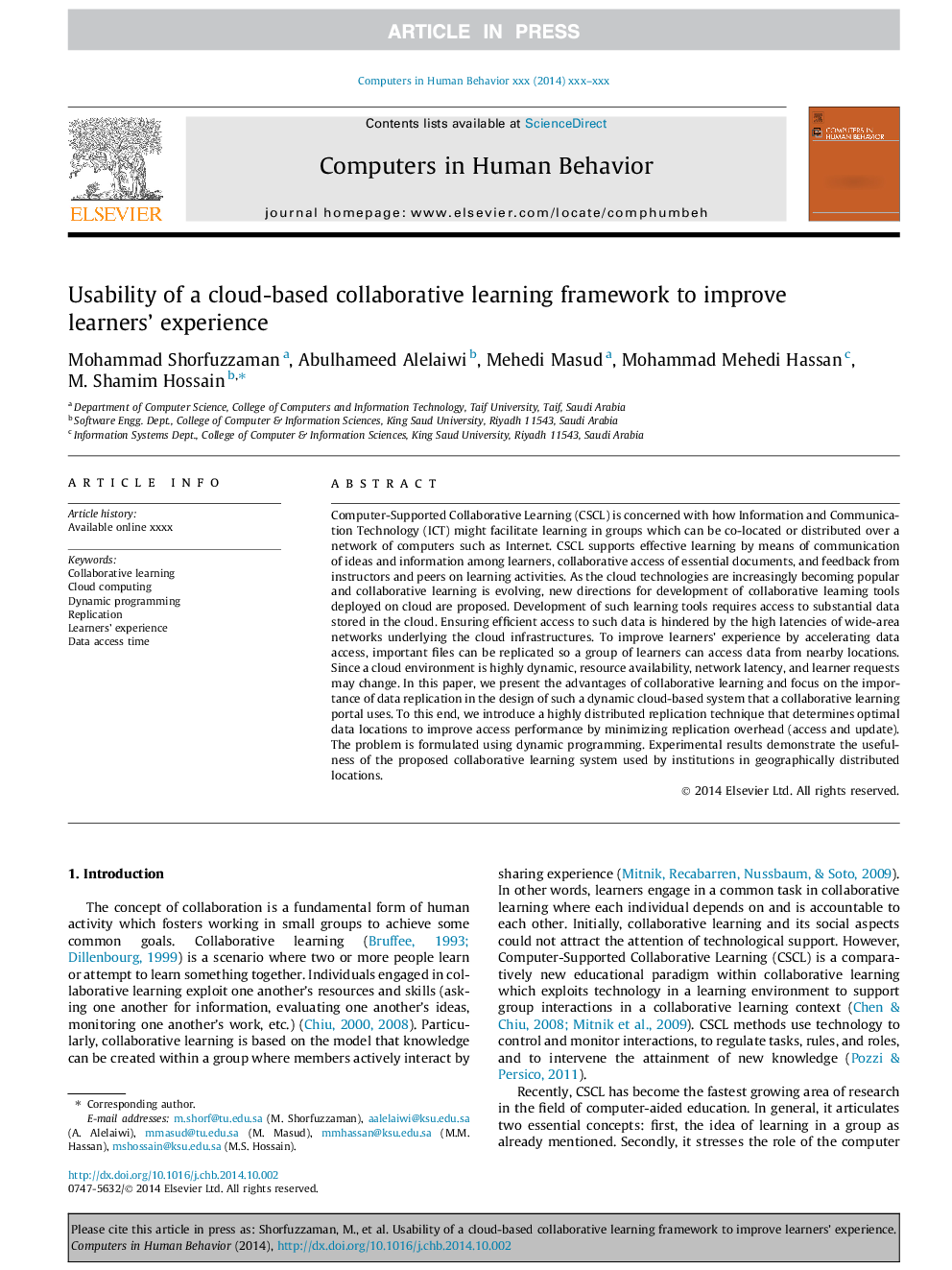| Article ID | Journal | Published Year | Pages | File Type |
|---|---|---|---|---|
| 10312640 | Computers in Human Behavior | 2015 | 10 Pages |
Abstract
Computer-Supported Collaborative Learning (CSCL) is concerned with how Information and Communication Technology (ICT) might facilitate learning in groups which can be co-located or distributed over a network of computers such as Internet. CSCL supports effective learning by means of communication of ideas and information among learners, collaborative access of essential documents, and feedback from instructors and peers on learning activities. As the cloud technologies are increasingly becoming popular and collaborative learning is evolving, new directions for development of collaborative learning tools deployed on cloud are proposed. Development of such learning tools requires access to substantial data stored in the cloud. Ensuring efficient access to such data is hindered by the high latencies of wide-area networks underlying the cloud infrastructures. To improve learners' experience by accelerating data access, important files can be replicated so a group of learners can access data from nearby locations. Since a cloud environment is highly dynamic, resource availability, network latency, and learner requests may change. In this paper, we present the advantages of collaborative learning and focus on the importance of data replication in the design of such a dynamic cloud-based system that a collaborative learning portal uses. To this end, we introduce a highly distributed replication technique that determines optimal data locations to improve access performance by minimizing replication overhead (access and update). The problem is formulated using dynamic programming. Experimental results demonstrate the usefulness of the proposed collaborative learning system used by institutions in geographically distributed locations.
Related Topics
Physical Sciences and Engineering
Computer Science
Computer Science Applications
Authors
Mohammad Shorfuzzaman, Abulhameed Alelaiwi, Mehedi Masud, Mohammad Mehedi Hassan, M. Shamim Hossain,
